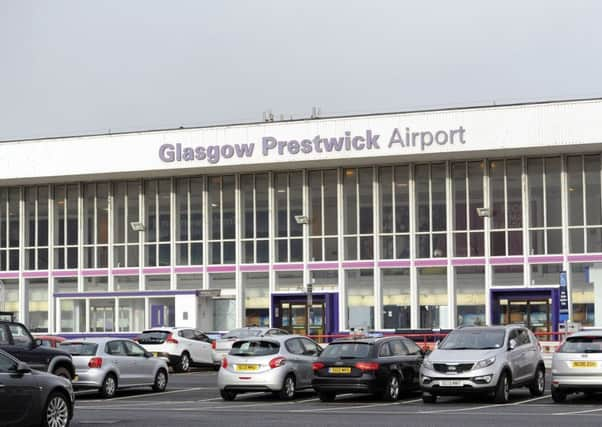Tory ministers considered extending Prestwick monopoly


Despite demands from Scottish business and international airlines to abandon the policy, declassified documents released by the National Archives in London reveal ministers resisted, privately arguing that the “political factor should predominate”.
Since 1946 all intercontinental flights in and out of Scotland had been required to stop at Prestwick, despite similar restrictions elsewhere in the UK having long since been abolished.
Advertisement
Hide AdAdvertisement
Hide AdIt meant that flights from Glasgow had to make the 25-minute hop to Ayrshire, which government advisers admitted was “ridiculous” and economically “highly questionable”.
Despite a Scottish court striking down statutory rules enforcing the monopoly in April 1989, the Department for Transport was prepared to stick with the policy on Prestwick. Briefing then prime minister Margaret Thatcher on the issue, her top economic adviser Paul Gray warned that “the politics centre on the impact on George Younger’s highly marginal constituency”.
Mr Gray wrote that “both [transport secretary] Paul Channon and [Scottish secretary] Malcolm Rifkind believe that this political factor should predominate”.
Another briefing from the Number 10 policy unit states that Mr Channon “has been put under some pressure by George Younger not to review the policy lest Glasgow is confirmed the better gateway and his constituency loses out”.
At a meeting in May 1989 to discuss Prestwick, Mr Rifkind told the Prime Minister and fellow cabinet members that the monopoly should continue. However, after a review of the policy in 1990, Mr Rifkind and the new transport secretary Cecil Parkinson agreed to abandon the restrictions.
At the 1987 general election, Ayr became the most marginal constituency in Scotland and the fourth most marginal in the UK when Mr Younger, who had served as MP for the area since 1964, beat Labour by just 182 votes.
Asked about his position on Prestwick, Mr Rifkind told The Scotsman that the restrictions “had been the policy of the government for a number of years”, and that the size of the Tory majority in Ayr “was not the basis on which I argued for a particular decision”.